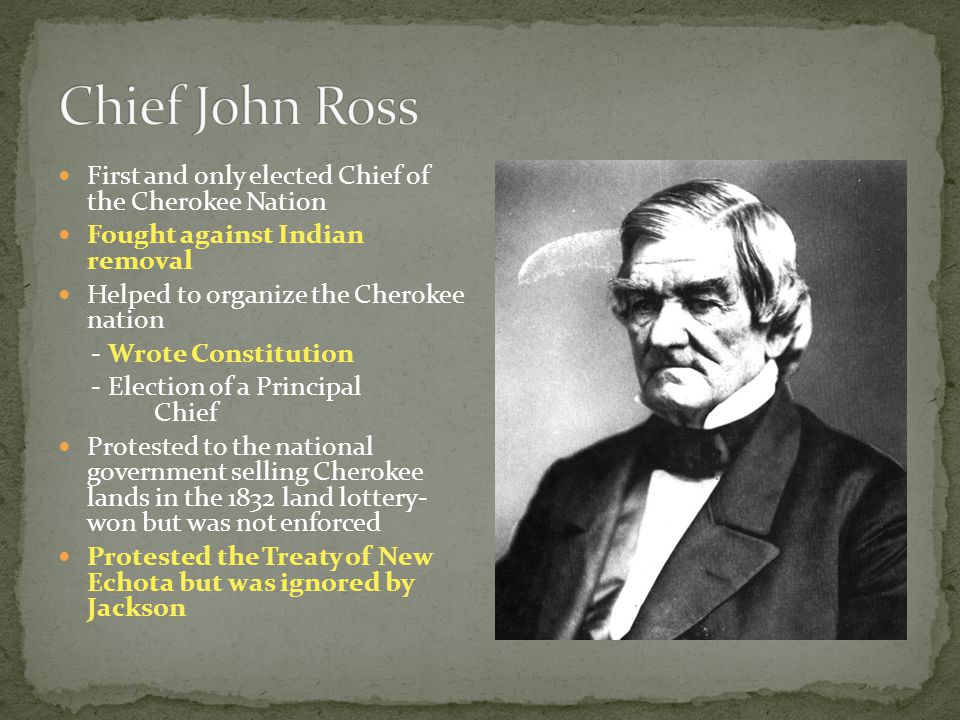As the head of the largest branch of the Cherokee nation from 1828 to 1866, John Ross led the Cherokee through a period of profound cultural change. Under Ross's leadership, the Cherokee nation engaged in a historic and controversial legal battle to preserve their sovereignty and underwent a disastrous forced march from Georgia to Oklahoma.
Ross was born near Lookout Mountain, Tennessee, on October 3, 1790. Although he was only one-eighth Cherokee by blood, Cherokee cultural identity in the early 1800s was as much a matter of upbringing and choice as genetics, and Ross was raised and considered himself a Cherokee.
In 1809 at age nineteen, Ross was sent, at the behest of both U.S. officials and Cherokee leaders, to confer with the western Cherokee, who had accepted payments from the United States
in exchange for an agreement to relocate to Oklahoma. Ross's quiet and reserved manner inspired confidence among both whites and Indians, and his skill at easing the tensions with the western Cherokee greatly increased his influence within the Cherokee nation.
Ross served as President of the National Council of the Cherokee from 1819 to 1826 and became principal chief of the eastern Cherokee in 1828. He thought the Cherokee could benefit from adopting certain aspects of European-American culture. Accordingly, with the help of two other Cherokee leaders, Major Ridge and Charles Hicks, Ross convinced many Cherokee to convert from an economy based on hunting and the fur trade to one of agriculture. Some Cherokee adopted the Southern tradition of
slave-holding. By the 1830s many members of the Cherokee nation were among the wealthiest individuals in what is now north Georgia. Ross himself was a slaveholder with a two hundred–acre farm.




 Did you not even try to read the thread?
Did you not even try to read the thread?